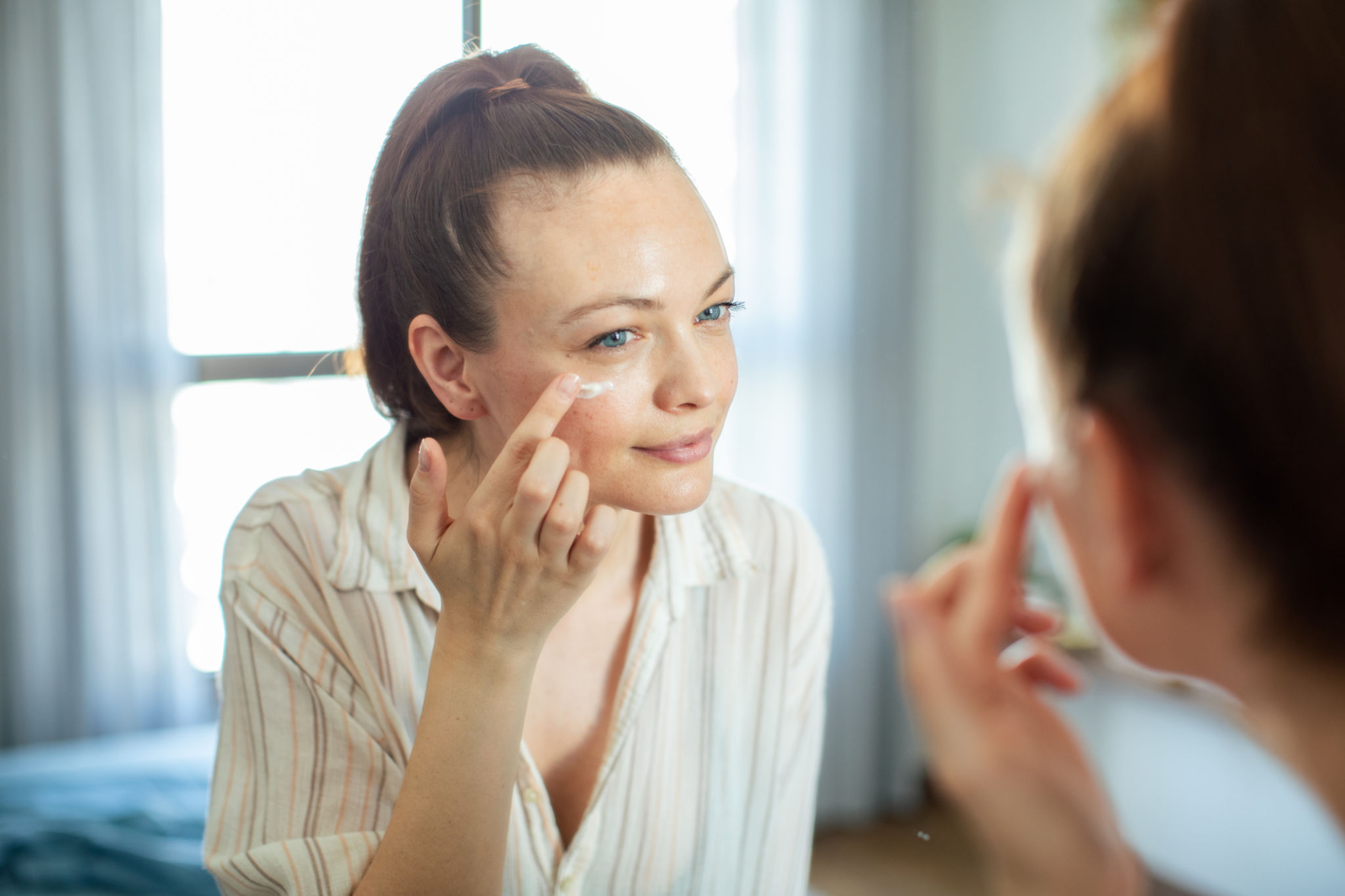The Ultimate Guide to Glowing Skin: Essential Skincare Tips
Understanding Your Skin Type
Before diving into the world of skincare, it's crucial to understand your skin type. Whether you have oily, dry, combination, or sensitive skin, identifying your skin type will help you choose the right products and routine. Each skin type has specific needs, and catering to these can significantly improve the health and appearance of your skin.
Oily skin tends to produce excess sebum, leading to shine and potential breakouts. Dry skin lacks moisture and can feel tight or flaky, requiring hydration. Combination skin is a mix of both oily and dry areas, often with an oily T-zone. Sensitive skin can react to various products or environmental factors, necessitating gentle care.

Daily Skincare Routine
A consistent daily skincare routine is fundamental to achieving glowing skin. This routine should include cleansing, toning, moisturizing, and applying sunscreen. Cleansing removes dirt and impurities from your skin, while toning helps balance your skin's pH levels. Moisturizing keeps your skin hydrated, and sunscreen protects against harmful UV rays.
For each step, select products that suit your skin type. For example, if you have oily skin, opt for a gel-based cleanser and a light moisturizer. Those with dry skin may benefit from a creamier cleanser and a richer moisturizer. Consistency is key, so stick to your routine daily for the best results.
Exfoliation
Exfoliation is an essential part of any skincare routine but should be done sparingly. It involves removing dead skin cells from the surface of the skin, promoting cell turnover and revealing a brighter complexion. Depending on your skin type, exfoliate once or twice a week using either a physical scrub or a chemical exfoliant like alpha-hydroxy acids (AHAs) or beta-hydroxy acids (BHAs).

Hydration and Nutrition
Hydration is not only about applying moisturizer but also about drinking plenty of water throughout the day. Staying hydrated helps maintain skin elasticity and can give your complexion a natural glow. Additionally, eating a balanced diet rich in vitamins and antioxidants supports overall skin health.
Incorporate foods high in omega-3 fatty acids, such as fish and flaxseeds, and vitamins like A, C, and E found in fruits and vegetables. These nutrients help protect the skin from damage and keep it looking youthful.

Targeted Treatments
For specific skincare concerns such as acne, hyperpigmentation, or aging signs like fine lines and wrinkles, consider targeted treatments. Ingredients like retinol can help reduce the appearance of fine lines, while vitamin C serums can brighten dark spots.
If you're dealing with acne, look for products containing salicylic acid or benzoyl peroxide. Remember to patch-test new products to ensure they don't irritate your skin.
Lifestyle Factors
Your lifestyle choices can have a significant impact on your skin's appearance. Ensure you're getting enough sleep each night; lack of sleep can lead to dark circles and dull-looking skin. Stress management is also crucial as stress can exacerbate skin issues like acne.
Moreover, regular exercise boosts circulation and helps deliver oxygen and nutrients to the skin, promoting a healthy glow. Avoid smoking and limit alcohol consumption as these can accelerate aging and dehydrate the skin.

Consulting a Dermatologist
If you're unsure about which products to use or how to address specific skin concerns, consulting a dermatologist can provide personalized advice. They can recommend treatments tailored to your needs and help you avoid common skincare mistakes.
A professional assessment can also diagnose any underlying issues that might be affecting your skin's health, ensuring that you can achieve the glowing complexion you desire.